Application
equipment
In this section you will find a range of practical information related to our solutions. In the articles, we share our experience, discuss implementation steps and highlight good practices. It is a reliable source of information and advice on the provision of drinking water in public spaces, the legal regulations in this area, the benefits of installing drinking water dispensers and the technological aspects in this field.
We look forward to reading!

The winter holidays are a time of rest for pupils, but for school principals and education administrators, it is the perfect opportunity to make upgrades that will affect the comfort and safety of children. One such solution is the installation of drinking water dispensers - an investment with health, environmental and economic benefits.
Every school should ensure that pupils have access to drinking water while they are on site. This is not only a regulatory obligation, but also part of building healthy habits and a concern for children's wellbeing.
Thanks to the water dispensers:
If you are thinking about introducing water dispensers in your school, we can help. We offer devices that are:
Safe and certified - All our dispensers are certified by the PZH and have a safety mark, which guarantees the highest quality and compliance with standards.
Ecological and economic - The distributors reduce plastic consumption, supporting environmental protection, while being economical to operate.
Modern and functional -We offer a variety of models:
Our dispensers are available in touchless versions, which further enhances hygiene. They are made of antibacterial materials that are easy to keep clean. The dispensers can be available in a variety of colours and branded with logos, slogans or school-related graphics to add a unique touch. Our experienced team provides a comprehensive installation and maintenance service, ensuring long-lasting and trouble-free operation of the units.

Water distributors are often installed by municipal water companies, further reducing installation costs. If you are looking for advice or considering implementing such a solution in your school, please contact us. We have the most experience in this field and would be happy to advise you on the best model to suit your establishment's needs.
The holidays are the ideal time to invest in modern and environmentally friendly solutions such as drinking water dispensers. This is not only the responsibility of the school, but also an expression of concern for the health and comfort of the pupils. With our certified equipment, you can be sure that you are choosing proven solutions that will make a positive difference to your school.
In this section you will find a range of practical information related to our solutions. In the articles, we share our experience, discuss implementation steps and highlight good practices. It is a reliable source of information and advice on the provision of drinking water in public spaces, the legal regulations in this area, the benefits of installing drinking water dispensers and the technological aspects in this field.
We look forward to reading!
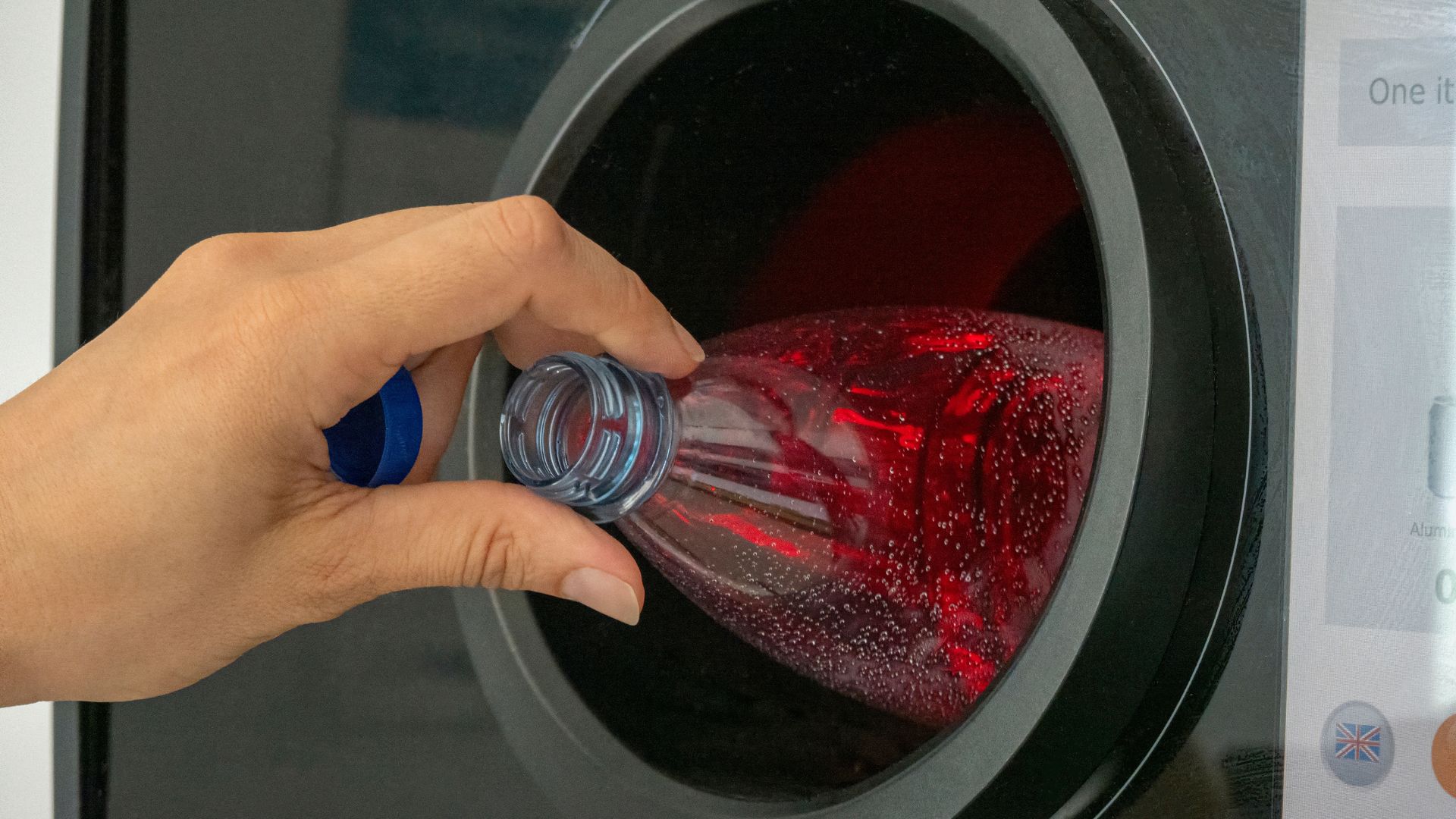
From 2025, a deposit system will come into effect in Poland, which aims to increase the recycling of plastic, glass and metal packaging. While the idea seems like a step towards protecting the environment, in practice it may come with many challenges. An alternative solution that is gaining popularity is the installation of networked drinking water dispensers and the use of reusable bidons. This solution not only eliminates the need to buy bottled water, but also has a number of environmental and household benefits.
The deposit system involves the introduction of a deposit, which will be added to the price of drinks sold in packaging such as plastic bottles, reusable glass bottles and cans. The consumer, after emptying the packaging, will be able to return it to special collection points, recovering the deposit paid.
The aim is to increase the amount of packaging recycled and reduce the amount of waste going to landfill. However, the system brings challenges such as:
Networked drinking water dispensers offer a solution that eliminates the need for bottled water. These devices deliver filtered, chilled and even carbonated water - depending on the users' needs. The combination of the dispensers and the use of reusable bottles makes it possible to completely dispense with single-use plastic in everyday life.

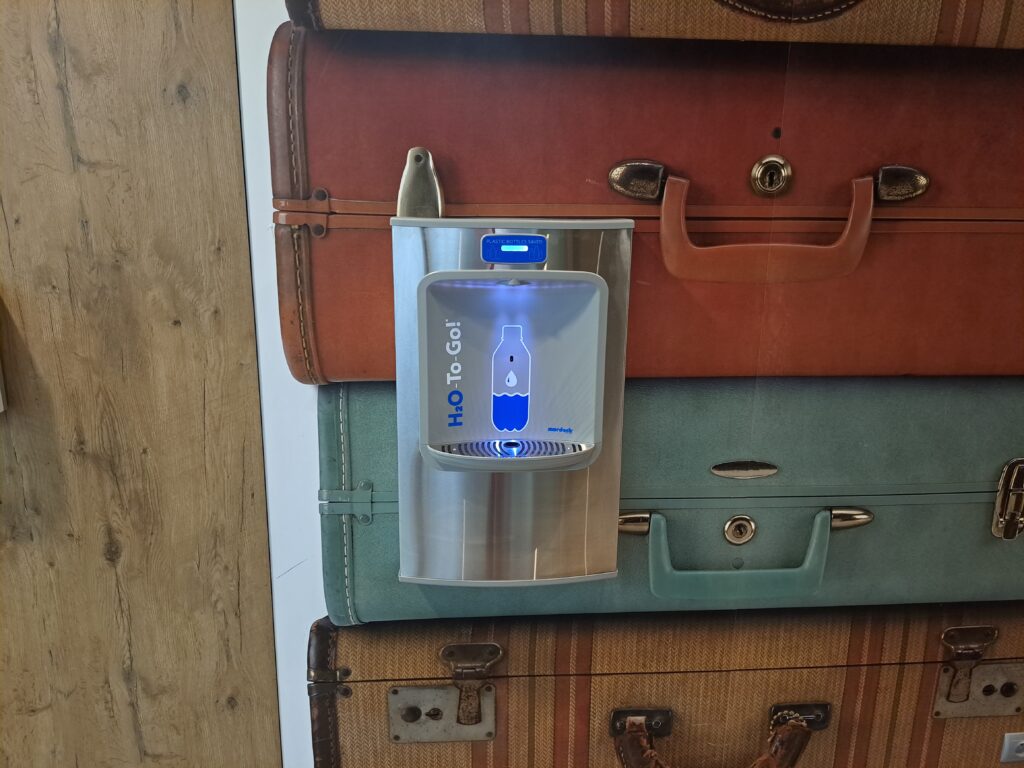
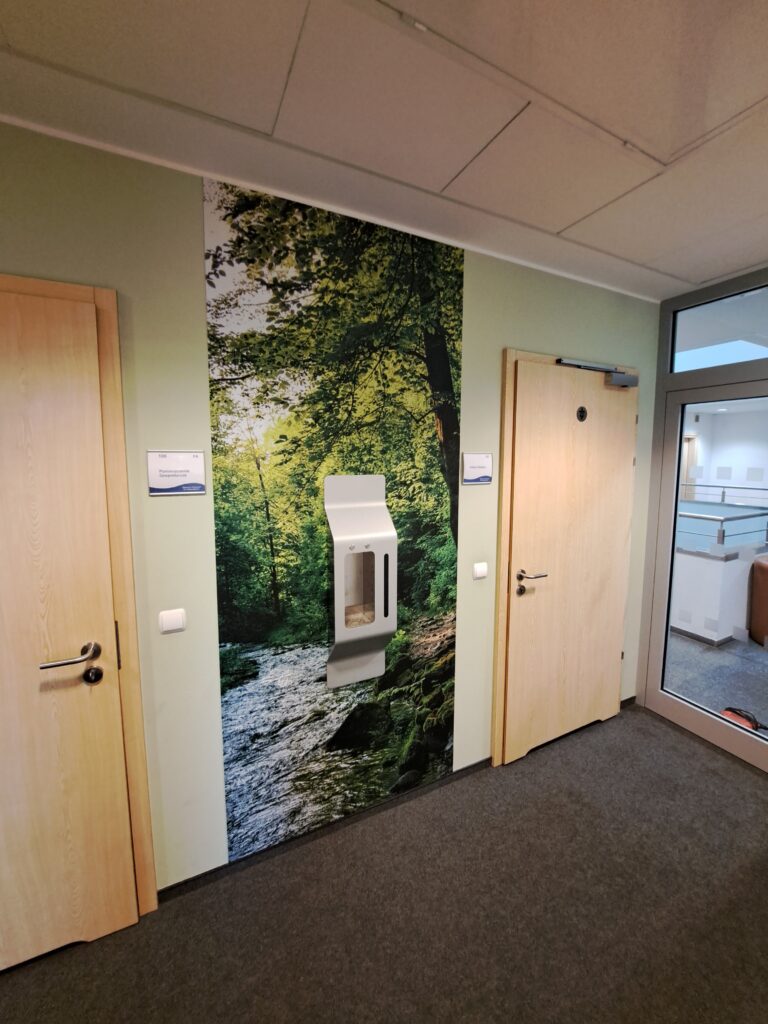
Although a deposit system can be an effective solution for environmental protection, drinking water dispensers are a more future-proof alternative. They address the needs of households as well as workplaces, schools or public institutions. Combined with education on the use of reusable bidons, dispensers can make a significant contribution to reducing waste and recycling costs.
Instead of relying on a system that requires complicated logistics and additional consumer involvement, it is worth opting for a solution that combines economy, ecology and convenience in one. Drinking water dispensers are a step towards a sustainable future.
In this section you will find a range of practical information related to our solutions. In the articles, we share our experience, discuss implementation steps and highlight good practices. It is a reliable source of information and advice on the provision of drinking water in public spaces, the legal regulations in this area, the benefits of installing drinking water dispensers and the technological aspects in this field.
We look forward to reading!

The start of the New Year is a time when many of us make resolutions to help us make positive changes in our lives. One of the most common commitments made is to take care of our health - both physically and mentally. While any time is good to start a new phase, the New Year provides special motivation to introduce healthy habits. We don't impose ready-made solutions, but offer support to help you achieve these goals.
One of the key elements of a healthy lifestyle is adequate hydration. This is where our drinking water dispensers come to the rescue, allowing constant access to fresh and tasty water, both at home and in the workplace.
Water is an essential element for the healthy functioning of our bodies. Drinking enough water on a regular basis has a number of benefits:
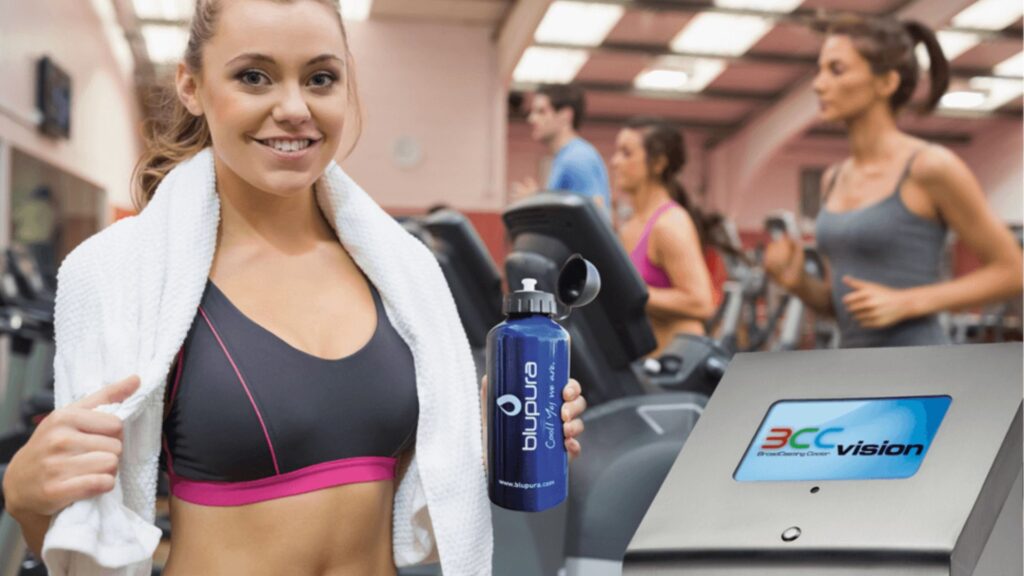
Our water dispensers are the solution for those who value comfort and quality.
With our water dispensers, water ceases to be just a chore and becomes an enjoyable part of your day. Reaching for fresh water has never been easier.
If looking after your health is among your New Year's resolutions, hydration should feature prominently on your list. Our drinking water dispensers are the perfect support to help you achieve your goals. Every moment is good for change, but the start of the New Year is the perfect time to take care of yourself. Start with small steps and the results will surprise you sooner than you expect.
In this section you will find a range of practical information related to our solutions. In the articles, we share our experience, discuss implementation steps and highlight good practices. It is a reliable source of information and advice on the provision of drinking water in public spaces, the legal regulations in this area, the benefits of installing drinking water dispensers and the technological aspects in this field.
We look forward to reading!

Mains water dispensers are becoming an increasingly popular choice for domestic use. They are a convenient, environmentally friendly and cost-effective solution that provides constant access to fresh water - chilled, carbonated or at room temperature.
Using a mains water dispenser means real savings. We no longer have to buy heavy bags of water or worry about transporting them. What's more, the device eliminates the need to store bottles, saving space in the home and reducing the generation of plastic waste.
Thanks to the dispenser, we have cheap and convenient access to chilled and sparkling water - ideal during hot days. It's the perfect way to keep the whole family hydrated and healthy, without having to buy drinks in disposable bottles.

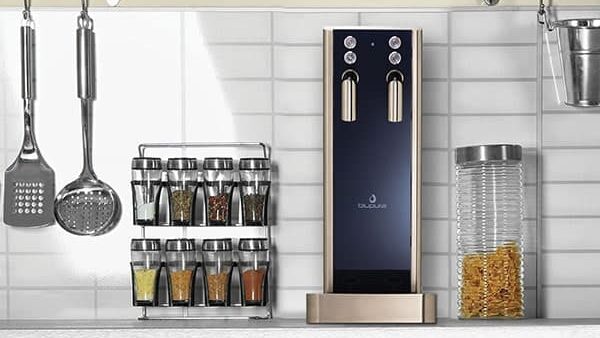
The variety of models available means that dispensers can be adapted to any interior. Their compact size saves space and the under-counter versions mean that the only visible element is the elegant dispensing tap. A discreet and modern solution for demanding users.
A mains water dispenser is an investment that quickly pays for itself, enhancing your living comfort and contributing to environmental protection. If you dream of having constant access to fresh, tasty water, consider this solution - your home and the planet will benefit! 🌍💧
In this section you will find a range of practical information related to our solutions. In the articles, we share our experience, discuss implementation steps and highlight good practices. It is a reliable source of information and advice on the provision of drinking water in public spaces, the legal regulations in this area, the benefits of installing drinking water dispensers and the technological aspects in this field.
We look forward to reading!
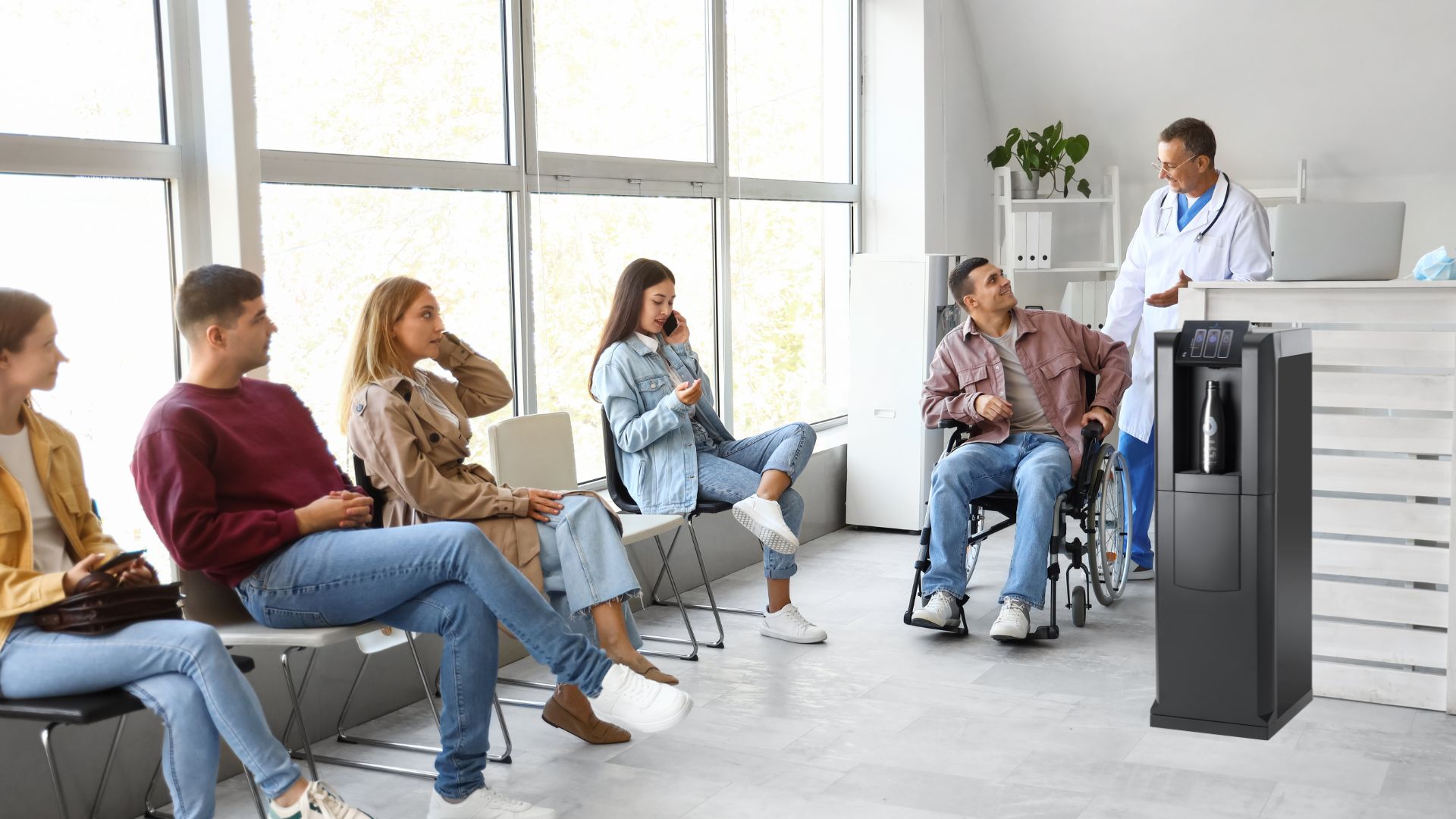
In order to ensure the comfort and wellbeing of their customers and clients, more and more offices and clinics are choosing to install public water dispensers in their service areas. These simple devices offer visitors the opportunity to quench their thirst free of charge, which is particularly valuable when waiting for their turn or dealing with important matters.
Access to fresh water has become not only a standard in offices and workplaces, but also a symbol of hospitality and concern for the wellbeing of visitors to public institutions. Clinics and offices that install dispensers prioritise convenience and meet the needs of their customers. After all, quenching one's thirst is one of the basic needs and, thanks to such solutions, everyone can fill up their water bottle, avoiding the need to buy drinks in nearby shops.
The dispensers we offer are modern, aesthetically pleasing and energy-efficient devices that are ideal for public places. With a variety of models and functions - from cool to hot water - we can ensure that fresh drinking water is available to every visitor to offices or clinics.
Installing dispensers in offices and medical facilities is a step towards modern customer service standards. Taking care of the basic needs of visitors not only improves their service, but also increases satisfaction with the level of service provided. Our water dispensers are the perfect solution to meet the needs of both petitioners and the institutions themselves.
In this section you will find a range of practical information related to our solutions. In the articles, we share our experience, discuss implementation steps and highlight good practices. It is a reliable source of information and advice on the provision of drinking water in public spaces, the legal regulations in this area, the benefits of installing drinking water dispensers and the technological aspects in this field.
We look forward to reading!
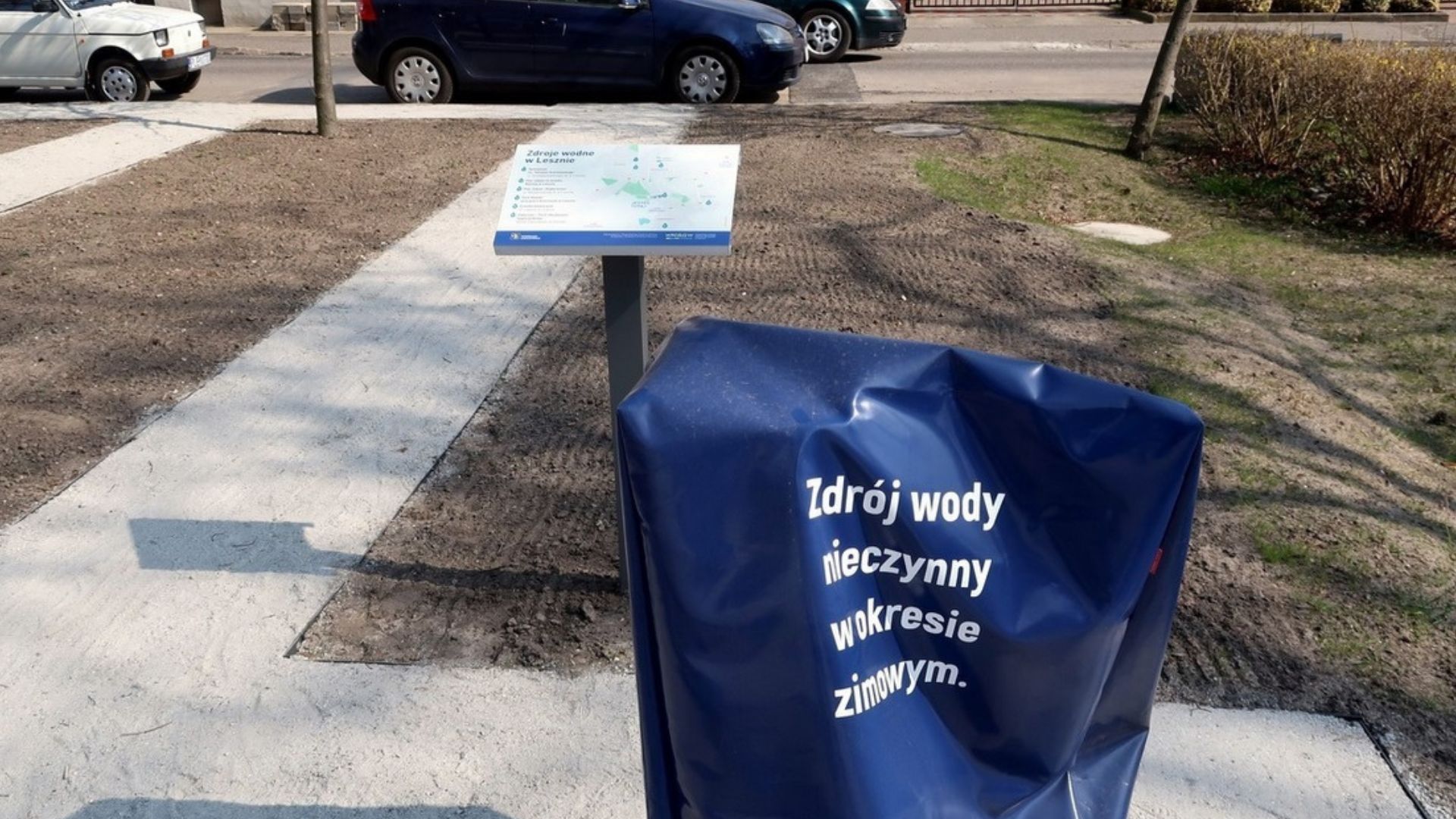
With winter approaching, it's time to think about protecting your outdoor water systems, such as your fire sprinklers, from low temperatures. If you have outdoor sprinklers that are not made frost-proof, preparing them properly for winter is crucial. Neglecting this process can lead to serious damage that may require costly repairs.
Water that is left in the system can freeze during freezing weather, expand and cause cracks in the pipes or in the sprinkler itself. Even the smallest amounts of water can contribute to damage, which is why it is so important to ensure proper maintenance.
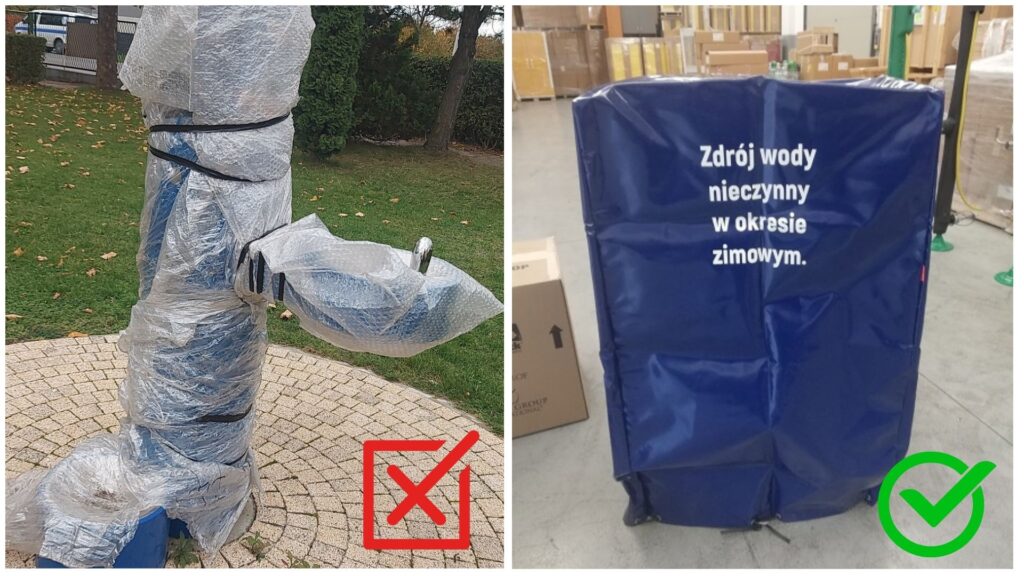
If you are unsure how to protect your water supply yourself for the winter, we encourage you to use our service. Our team of specialists is experienced in properly preparing water systems for the winter period.
Why use the assistance?
Remember, properly preparing your outdoor drains for winter is an investment in their longevity and saves on future repairs. Contact us today and have us comprehensively prepare your installation for the upcoming winter season!
In this section you will find a range of practical information related to our solutions. In the articles, we share our experience, discuss implementation steps and highlight good practices. It is a reliable source of information and advice on the provision of drinking water in public spaces, the legal regulations in this area, the benefits of installing drinking water dispensers and the technological aspects in this field.
We look forward to reading!
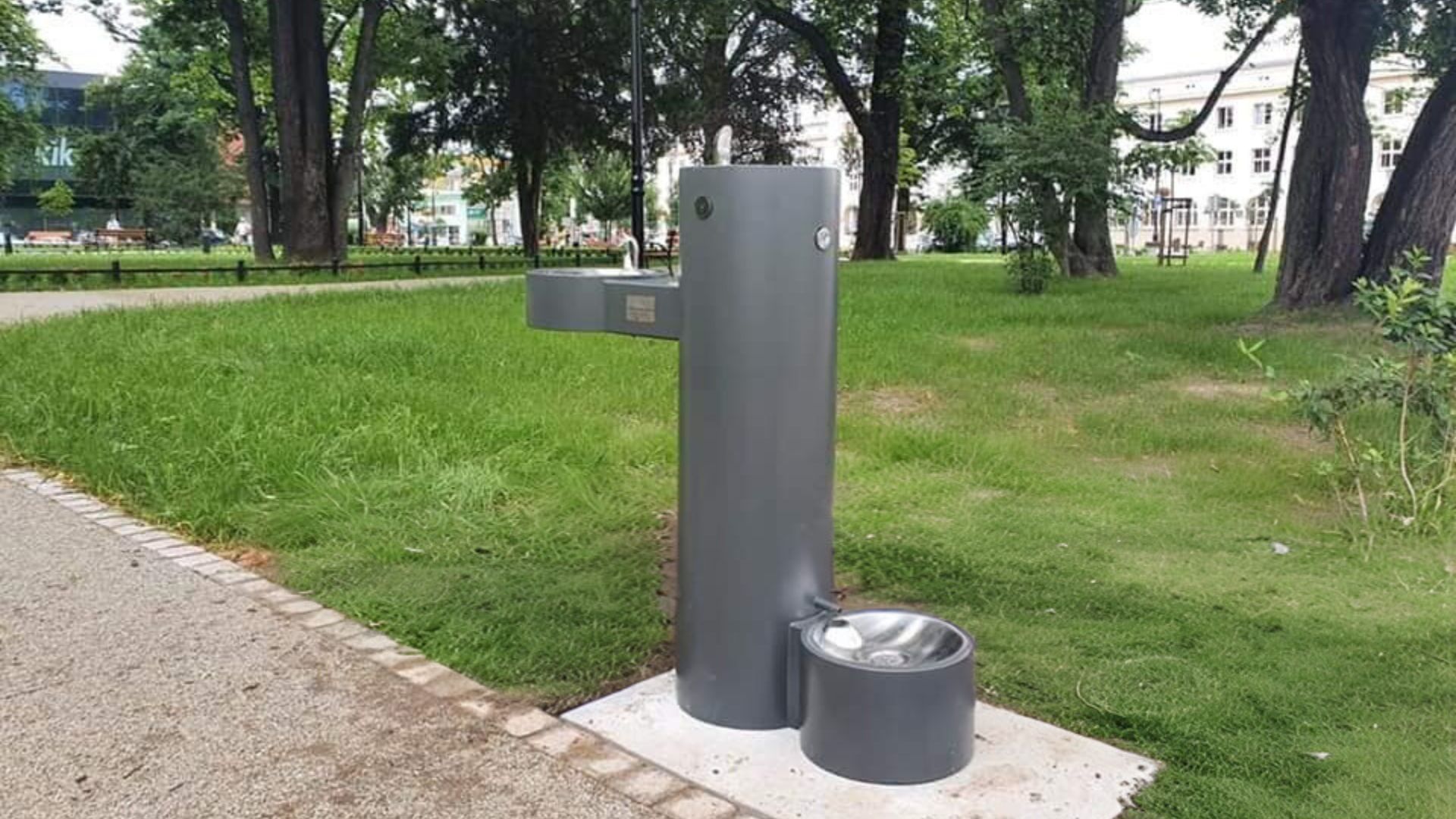
In recent years, the topic of access to clean drinking water has gained prominence across Europe, and the European Union has taken concrete steps to ensure high quality drinking water for its citizens. Poland, like other member states, is obliged to implement the solutions contained in Directive (EU) 2020/2184 of the European Parliament and of the Council of 16 December 2020 concerning the quality of water intended for human consumption. This Directive introduces new standards and obligations that must be introduced into national legislation.
Although the implementation deadline passed on 12 January 2023, Poland has not yet implemented all the changes, resulting in the preparation of an amendment to the Act on collective water supply and collective sewage disposal. According to its provisions, local authorities - mayors and city presidents - will be obliged to increase residents' access to drinking water by providing public water points.
Directive 2020/2184 is part of a broader European Union policy to improve public health and protect the environment. Here are the main features of this document:
In the context of the amendment of the Polish law on collective water supply, local authorities will have to face new challenges. One of the main obligations under the bill will be to provide residents with better access to drinking water by creating public water points. Solutions such as public water springs or stations with clean drinking water will become a necessity in public spaces such as parks, squares or city centres.
It should be noted that solutions of this type not only comply with the requirements of the EU directive, but are also an effective way of promoting drinking tap water as an alternative to bottled water, which has a positive impact on both the environment and residents' wallets.
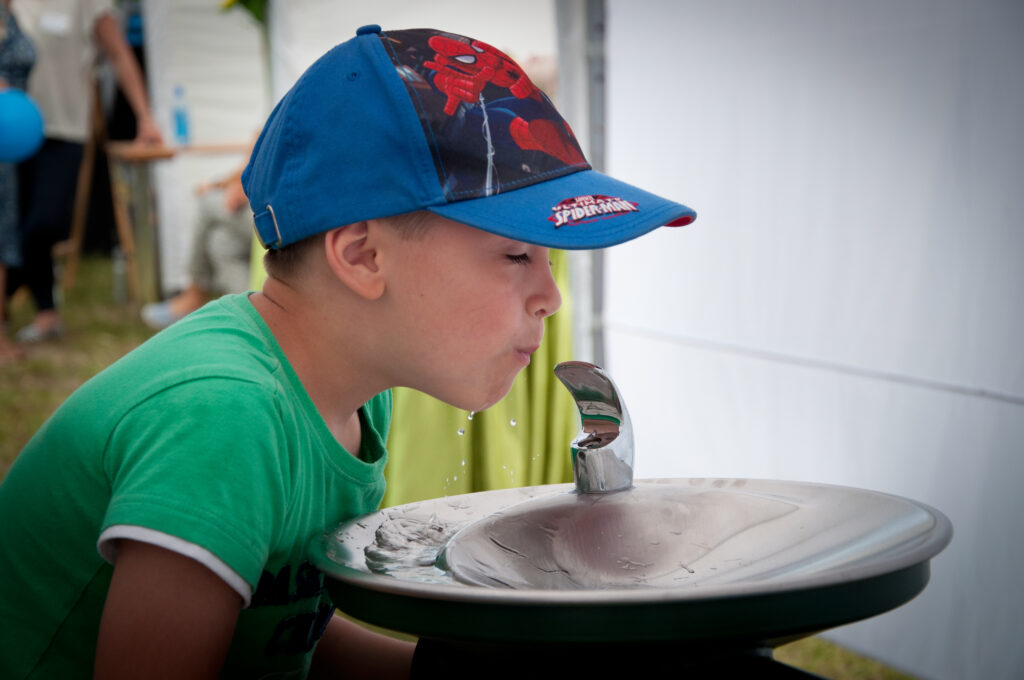
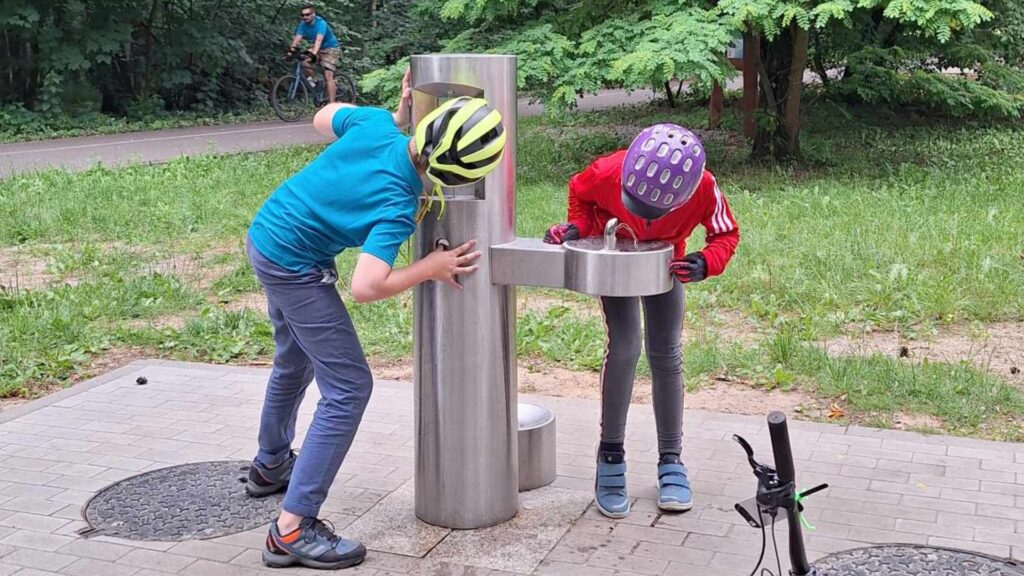
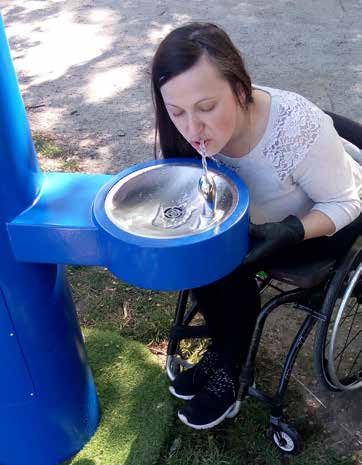
In response to new regulations and the needs of local authorities, we offer modern and efficient solutions to help meet the requirements arising from the EU directive. Our water spigots and drinking water stations not only facilitate residents' access to clean water, but are also recommended in legal standards as innovative solutions to support municipal infrastructure. They make it easy for local authorities to meet their new obligations while promoting an environmentally friendly approach to water use.
The amendment of the Act on collective water supply is a key step towards improving access to drinking water in Poland. The introduction of public water points will help to meet the requirements of the EU Directive 2020/2184 and will also have a positive impact on the health of residents and environmental protection. Using innovative solutions available on the market, such as wells and water stations, local governments can easily meet the new challenges and provide high-quality drinking water for all.
In this section you will find a range of practical information related to our solutions. In the articles, we share our experience, discuss implementation steps and highlight good practices. It is a reliable source of information and advice on the provision of drinking water in public spaces, the legal regulations in this area, the benefits of installing drinking water dispensers and the technological aspects in this field.
We look forward to reading!

The modern working environment is where we spend a significant part of our day. It generally consists of intensive desk work, meetings or tasks that require constant concentration. In such conditions, regular drinking of coffee and tea has become an almost inseparable part of the working day. However, it is worth remembering that, in addition to these popular drinks, there is one key element that has a huge impact on our health, concentration and productivity - the water.
Water is essential for the proper functioning of our bodies. Hydration not only affects our wellbeing, but also our mental and physical abilities. Here are some of the benefits of drinking water regularly at work:

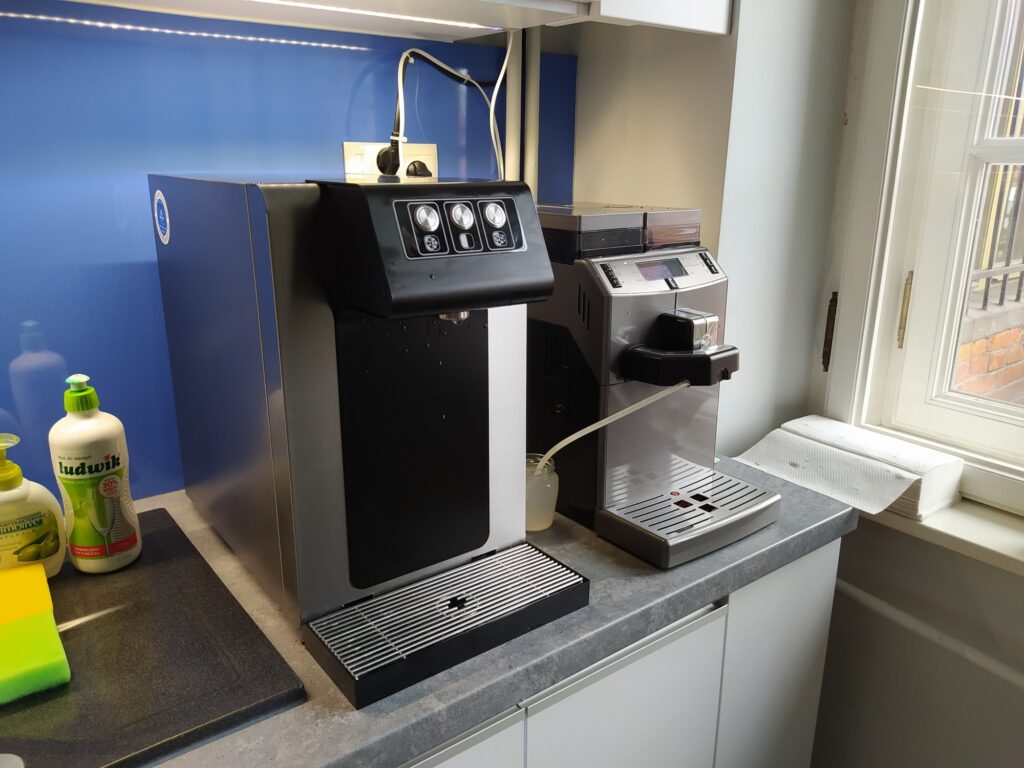
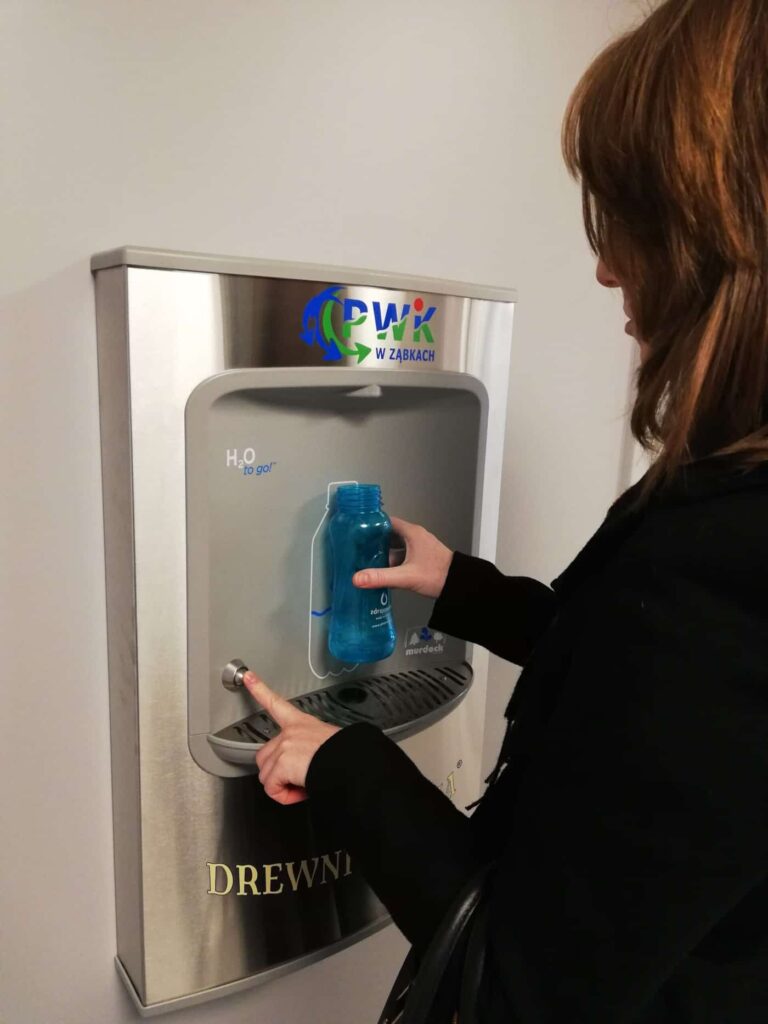
Understanding the importance of water in the workplace is the first step to ensuring that employees are adequately hydrated. It is worthwhile for employers to ensure that water is always available. To this end, the ideal solutions are water dispenserswhich bring a number of benefits:
Drinking water regularly at work is key to improving employee health, concentration and productivity. Investing in water dispensers is a step towards going green, saving money and keeping your team comfortable. Thanks to such devices, employees have constant access to clean, fresh water, which not only supports their health but also increases productivity. It is worthwhile for employers who want to create a friendly and functional working environment to consider such a solution.
In this section you will find a range of practical information related to our solutions. In the articles, we share our experience, discuss implementation steps and highlight good practices. It is a reliable source of information and advice on the provision of drinking water in public spaces, the legal regulations in this area, the benefits of installing drinking water dispensers and the technological aspects in this field.
We look forward to reading!
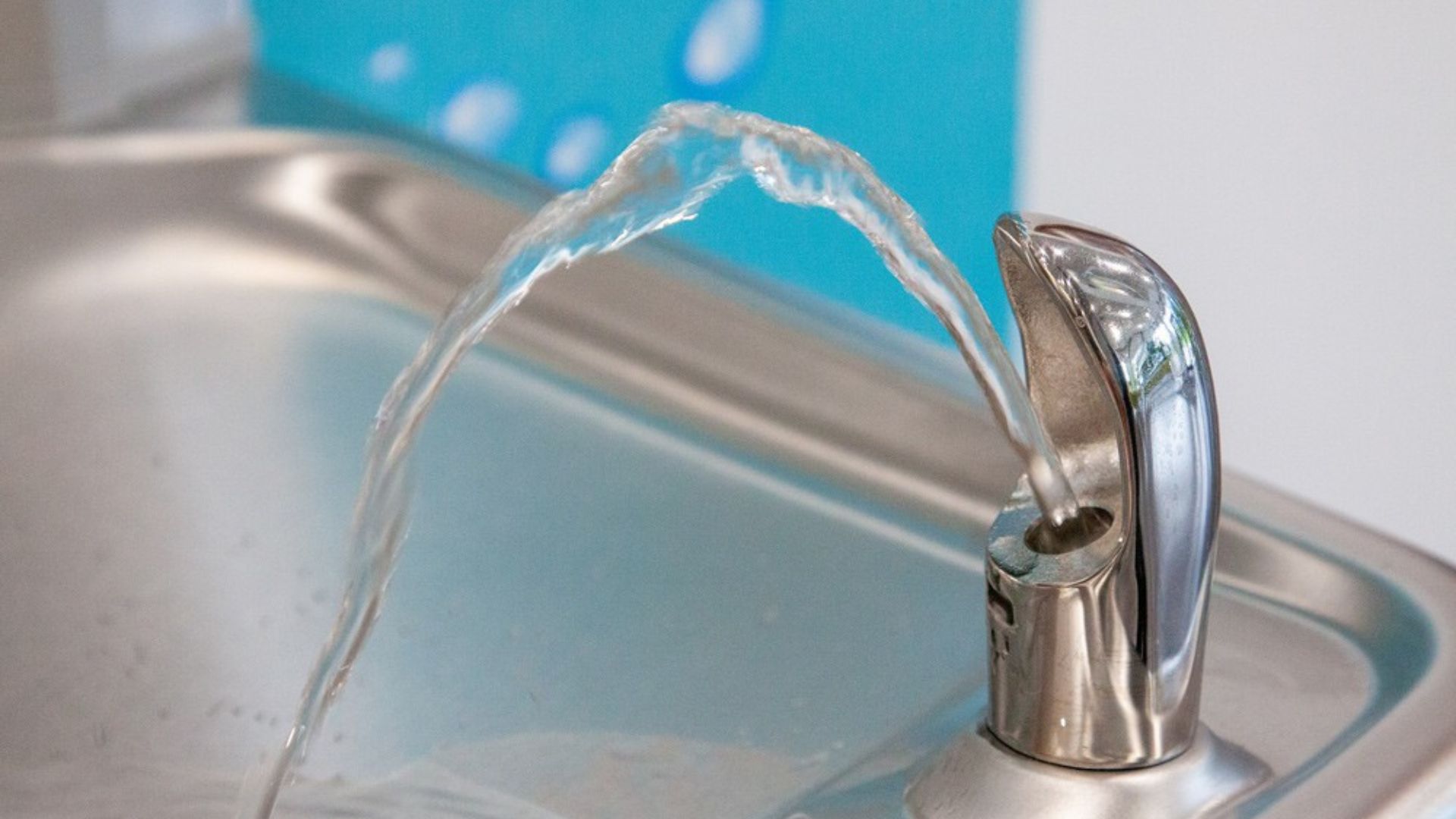
After the summer holidays or an extended break, when schools fill up with students again, one essential element that is often forgotten is water springs and dispensers. Although they are used without much thought on a daily basis, the quality of the water that comes out of them is crucial for the health of pupils and school staff. To ensure that it is of an adequate standard, it is necessary to sanitise, clean and regulate these devices after a prolonged break.
During the summer holidays, when schools remain closed and water systems are unused, contaminants can build up in pipes and reservoirs. The lack of regular water flow encourages the growth of bacteria, including dangerous microorganisms like Legionellawhich can endanger the health of users. In addition, improperly maintained equipment can affect the quality of the water, altering its taste, odour and clarity.
Sanitisation of water dispensers and springs is crucial to ensure that the water supplied meets all sanitary and quality standards. It includes thorough cleaning of all equipment components, disinfection of surfaces in contact with the water and removal of sediment and biofilm that could promote bacterial growth.
An important step is also checking the filters. Filters that have been inactive for a long time can lose their properties and become a source of contamination. Replacing or cleaning filters is therefore essential to ensure clean and healthy drinking water.
It is often forgotten that after a prolonged break, equipment such as water springs or water dispensers may need adjusting. Regular servicing not only maintains the quality of the water, but also extends the life of the equipment. This includes, among other things, checking water pressure, seals and checking that all mechanisms are working properly.
Healthy and safe water is a fundamental right for every pupil and school staff member. Regular cleaning and sanitising of dispensers avoids health risks, improves user comfort and ensures that children drink water of the highest quality. It is therefore worth enlisting the help of professionals such as our service technicians and having your water dispensers professionally cleaned and sanitised once a year.
In this section you will find a range of practical information related to our solutions. In the articles, we share our experience, discuss implementation steps and highlight good practices. It is a reliable source of information and advice on the provision of drinking water in public spaces, the legal regulations in this area, the benefits of installing drinking water dispensers and the technological aspects in this field.
We look forward to reading!
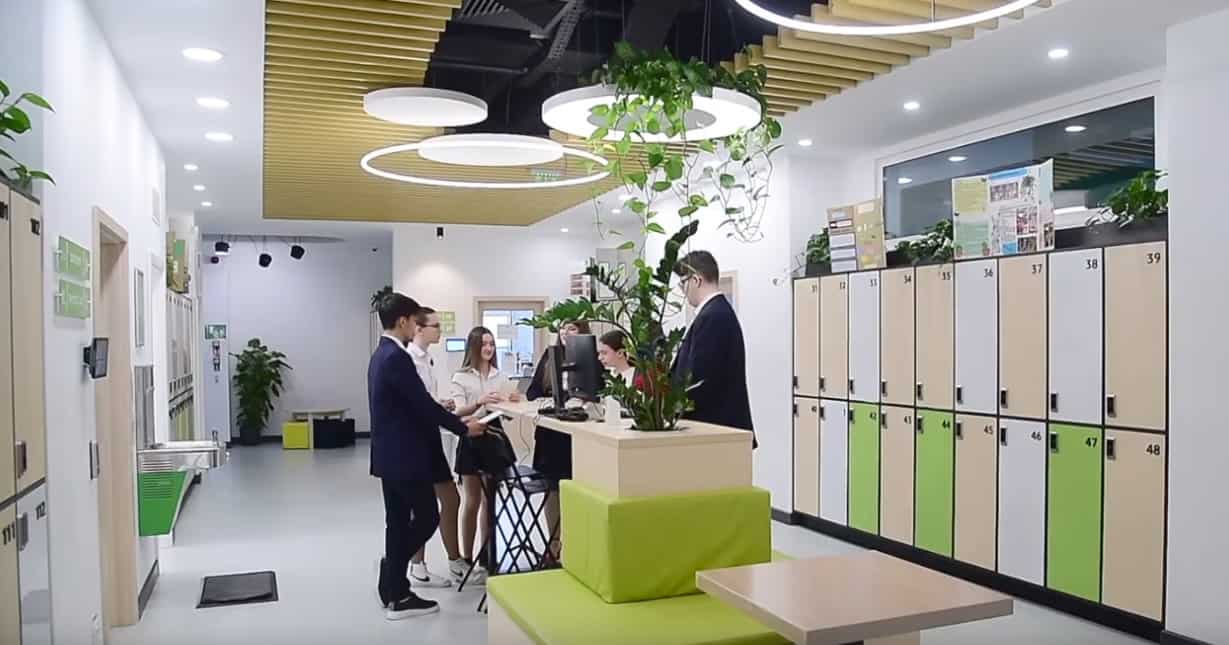
The summer holidays are a time eagerly awaited by pupils and teachers alike. It is also the perfect opportunity to carry out renovation and modernisation works in schools without disrupting daily educational activities. One such activity worth considering is the installation of drinking water springs and dispensers. Why is it worth doing this right now?
Carrying out renovations and installing new equipment during the school year can be problematic. The presence of children, teachers and school staff often complicates the execution of renovation work. During the holidays, schools are empty, allowing any necessary work to be carried out without disruption or stress. The installation of drinking water springs and dispensers goes much more smoothly and the risk of delays and complications is minimised.
Our solutions for drinking water springs and dispensers are designed to make installation as simple as possible. They do not require major structural changes or complicated construction work. As a result, installation is quick and trouble-free. The use of modern technology and well thought-out designs means that our units can be easily adapted to the different infrastructural conditions in schools.
When you opt for our drinking water springs and dispensers, you do not have to worry about the technical aspects. Our service department is always ready to help. We provide support at every stage - from planning and installation to regular maintenance and possible repairs. Our specialists are available to answer any questions and dispel any doubts, making the whole process even easier.
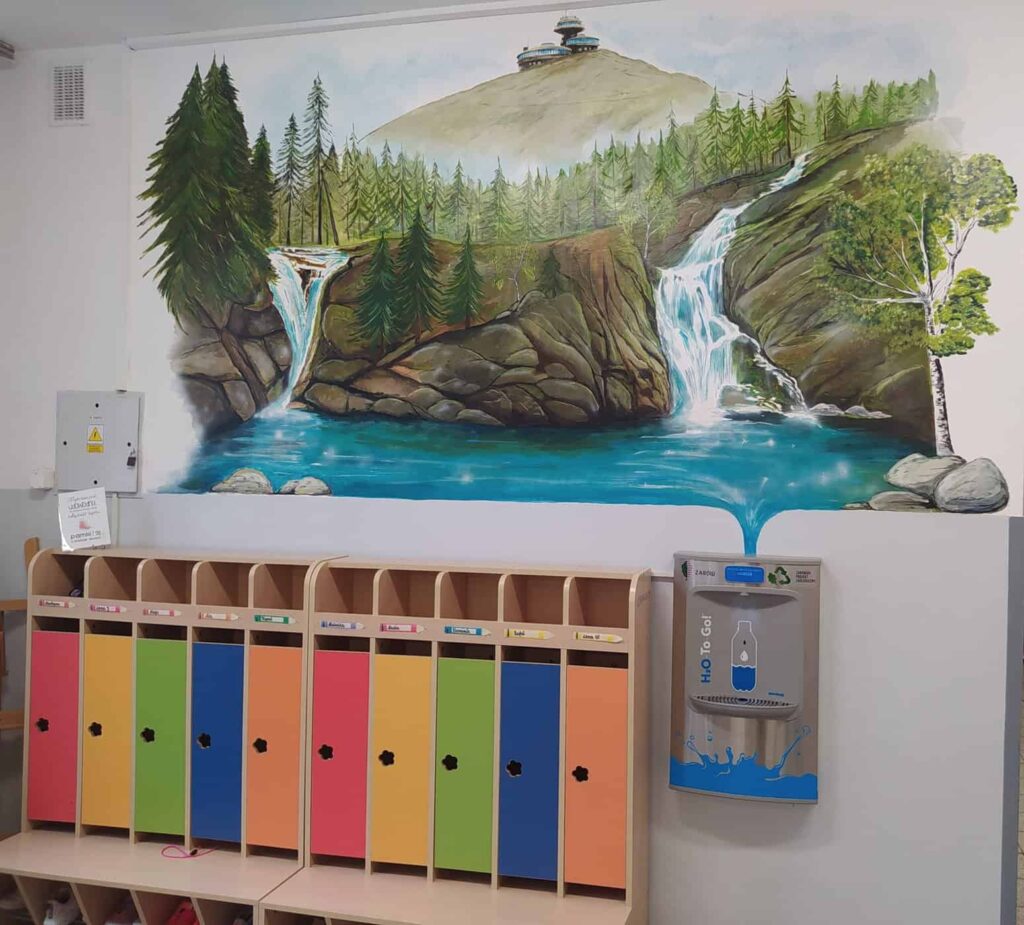

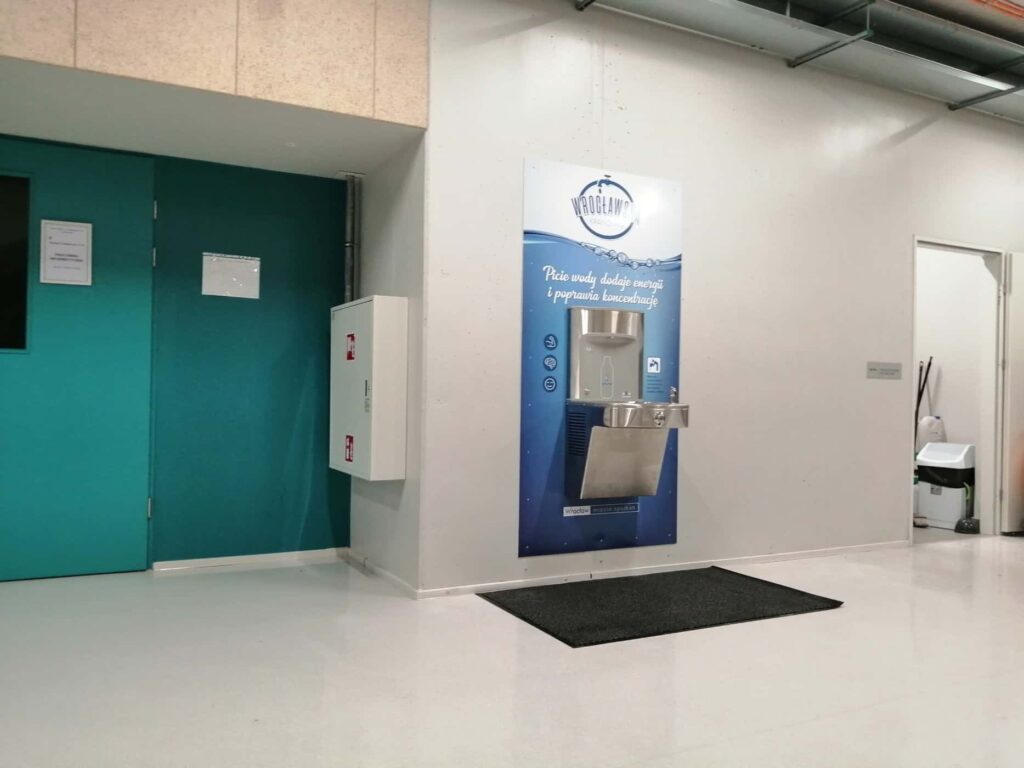
Ensuring access to fresh, clean drinking water in schools is of paramount importance for the health and wellbeing of pupils and staff. Drinking water regularly improves concentration, supports learning processes and prevents dehydration, which can lead to fatigue and health problems. Drinking water dispensers and springs are becoming an indispensable part of modern, health-conscious educational establishments.
The holidays are the perfect time to invest in school infrastructure. Installing drinking water springs and dispensers during the holiday season is not only convenient, but also a strategic move that will pay dividends for years to come. Thanks to the simplicity of installation and the support of our service department, the process is quick and hassle-free. By investing in our solutions, you are ensuring the health and comfort of students and school staff.
Feel free to contact us and take advantage of our offer - together we can make your school an even better place! 🌟